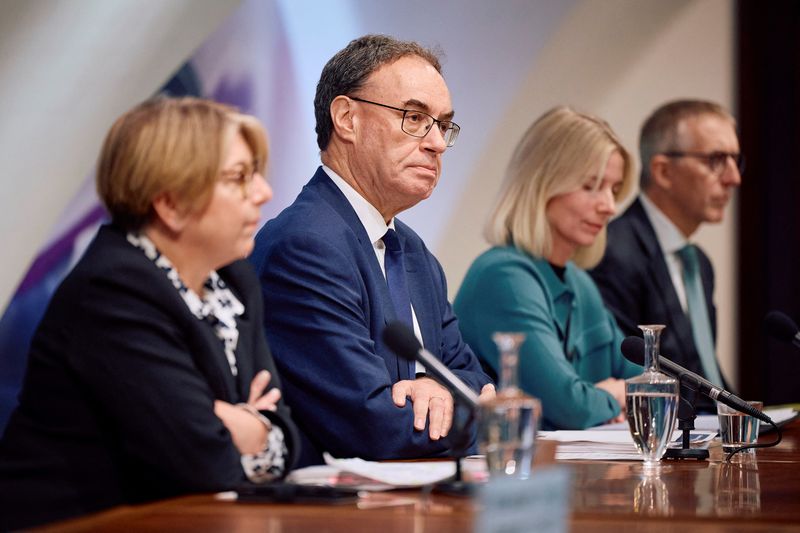Bank of England warns of risks from rise in global trade barriers
2024.11.29 14:11
By William Schomberg, Lawrence White and Suban Abdulla
LONDON (Reuters) -The Bank of England warned on Friday that higher trade barriers could hit global growth and feed uncertainty about inflation, potentially causing volatility in financial markets and pushing up borrowing costs for businesses and consumers.
Without specifically referring to the victory of Donald Trump in the U.S. presidential election, the BoE said the financial system could also be impacted by disruption to cross-border capital flows and a reduced ability to diversify risk.
“A reduction in the degree of international policy cooperation could hinder progress by authorities in improving the resilience of the financial system and its ability to absorb future shocks,” the BoE said in a half-yearly report on the financial system.
Asked at a press conference about the likely impact of a second Trump presidency, Bailey repeated his stance that he wanted to see the policies the Trump administration will pursue.
“We are seeing increased risk of global fragmentation. But I would say this, that there are quite a lot of causes of that and I don’t think it’s right to pin it on one particular event.”
While UK households, businesses and banks appeared to be in good shape, the BoE report said, Britain’s financial sector faced risks that were “particularly relevant” given the openness of the UK economy.
Other threats included high levels of public debt in many economies around the world.
“Uncertainty around, and risks to, the outlook have increased,” the report said.
Bailey pushed back against a complaint from new finance minister Rachel Reeves that British regulators had inadvertently damaged the economy by taking too tough a stance on risk-taking in the financial sector.
“Put simply, there is not a trade-off between financial stability and growth. This is a fundamental point,” he said.
But he said there were choices about how to apply rules and he said the BoE’s announcement on Friday that it would conduct full tests on the health of UK banks once every two years, and no longer annually, was an example of how to help competitiveness in the sector.
Bailey also stressed the importance of minimum international financial standards in the wake of the Nov. 5 U.S. election.
The BoE said it continued to judge that valuations and risk premia in financial markets were “vulnerable to a sharp correction” due to the risks to growth and inflation and uncertainty about interest rates.
“Such a correction could be amplified by long-standing vulnerabilities in market-based finance” and could push up borrowing costs for UK households and businesses, it warned.
The BoE said its latest tests of the resilience of UK banks showed they were well capitalised with high levels of liquidity.
But it said non-bank financial institutions such as hedge funds remained vulnerable to a sudden financial shock and might have to undertake a fire sale of assets such as British corporate bonds in this scenario.
Going forward, the central bank plans to carry out full stress tests once every two years starting in 2025, reducing the administrative strain on lenders and allowing the BoE to focus on other potential financial risks.

Less detailed desk-based stress tests would be conducted by the BoE, when needed, in the intervening years.
The BoE held its countercyclical capital buffer (CCyB), or “rainy day” capital requirement for banks that can be drawn on in stressed times, at its neutral setting of 2%.








